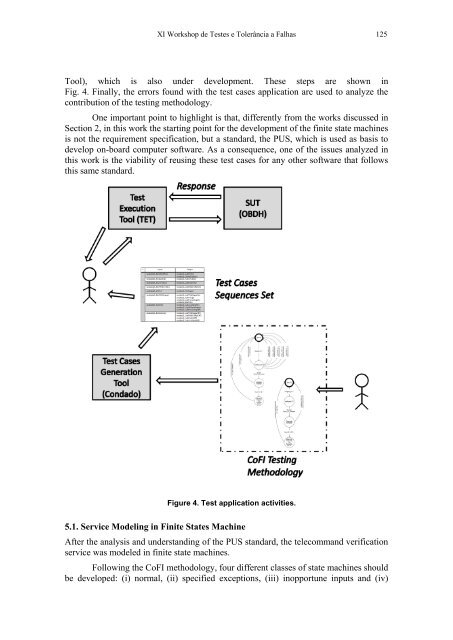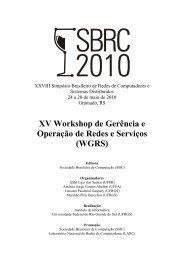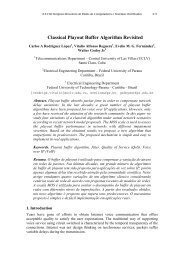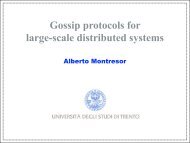XI Workshop de Testes e Tolerância a Falhas (WTF) - SBRC 2010
XI Workshop de Testes e Tolerância a Falhas (WTF) - SBRC 2010
XI Workshop de Testes e Tolerância a Falhas (WTF) - SBRC 2010
Create successful ePaper yourself
Turn your PDF publications into a flip-book with our unique Google optimized e-Paper software.
<strong>XI</strong> <strong>Workshop</strong> <strong>de</strong> <strong>Testes</strong> e Tolerância a <strong>Falhas</strong> 125<br />
Tool), which is also un<strong>de</strong>r <strong>de</strong>velopment. These steps are shown in<br />
Fig. 4. Finally, the errors found with the test cases application are used to analyze the<br />
contribution of the testing methodology.<br />
One important point to highlight is that, differently from the works discussed in<br />
Section 2, in this work the starting point for the <strong>de</strong>velopment of the finite state machines<br />
is not the requirement specification, but a standard, the PUS, which is used as basis to<br />
<strong>de</strong>velop on-board computer software. As a consequence, one of the issues analyzed in<br />
this work is the viability of reusing these test cases for any other software that follows<br />
this same standard.<br />
Figure 4. Test application activities.<br />
5.1. Service Mo<strong>de</strong>ling in Finite States Machine<br />
After the analysis and un<strong>de</strong>rstanding of the PUS standard, the telecommand verification<br />
service was mo<strong>de</strong>led in finite state machines.<br />
Following the CoFI methodology, four different classes of state machines should<br />
be <strong>de</strong>veloped: (i) normal, (ii) specified exceptions, (iii) inopportune inputs and (iv)







